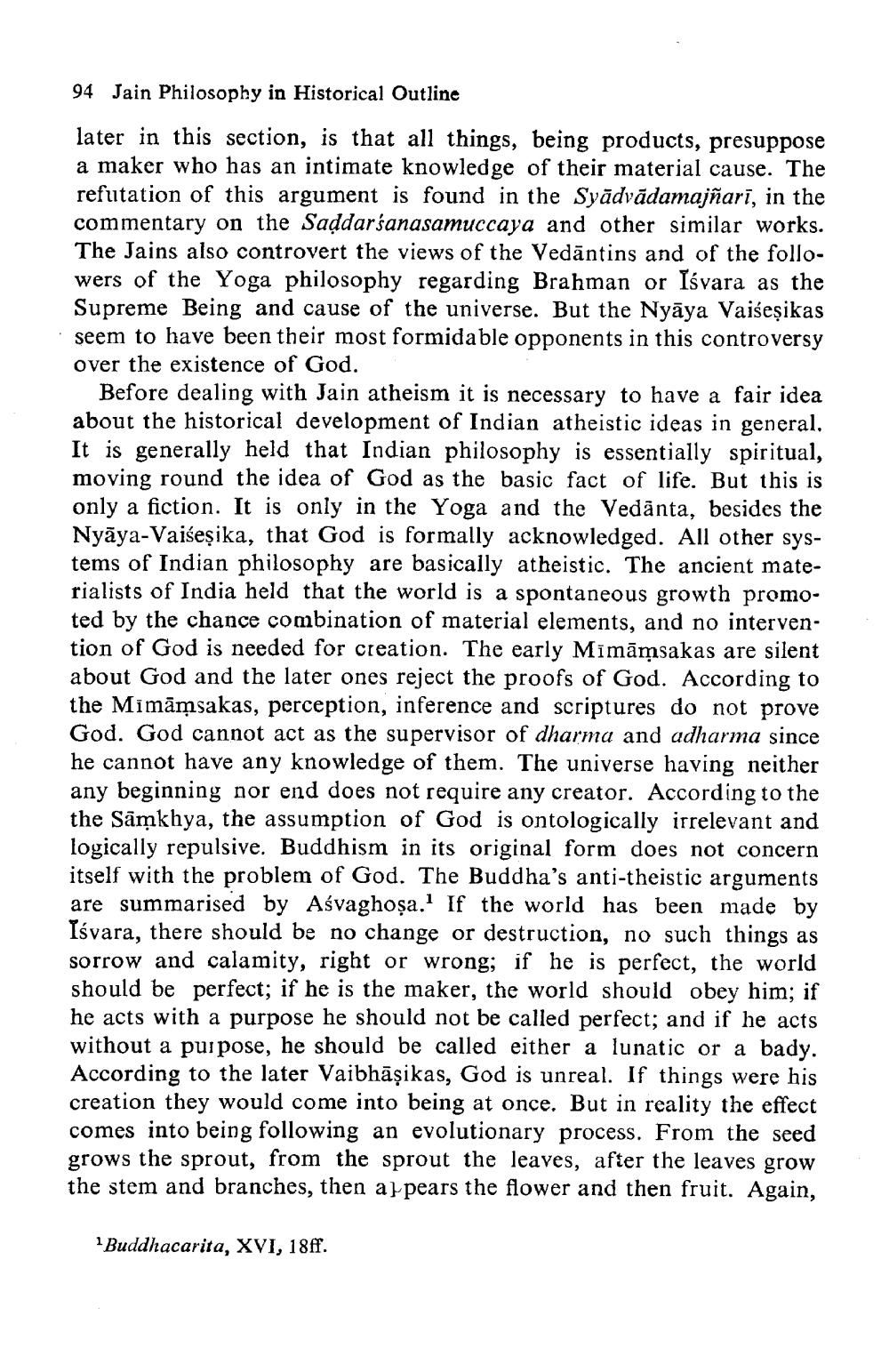________________
94 Jain Philosophy in Historical Outline later in this section, is that all things, being products, presuppose a maker who has an intimate knowledge of their material cause. The refutation of this argument is found in the Syādvādamajñarī, in the commentary on the Saddarśanasamuccaya and other similar works. The Jains also controvert the views of the Vedāntins and of the followers of the Yoga philosophy regarding Brahman or Isvara as the Supreme Being and cause of the universe. But the Nyāya Vaiseșikas seem to have been their most formidable opponents in this controversy over the existence of God.
Before dealing with Jain atheism it is necessary to have a fair idea about the historical development of Indian atheistic ideas in general. It is generally held that Indian philosophy is essentially spiritual, moving round the idea of God as the basic fact of life. But this is only a fiction. It is only in the Yoga and the Vedānta, besides the Nyāya-Vaiseșika, that God is formally acknowledged. All other systems of Indian philosophy are basically atheistic. The ancient materialists of India held that the world is a spontaneous growth promoted by the chance combination of material elements, and no intervention of God is needed for creation. The early Mimāmsakas are silent about God and the later ones reject the proofs of God. According to the Mimāmsakas, perception, inference and scriptures do not prove God. God cannot act as the supervisor of dharma and adharma since he cannot have any knowledge of them. The universe having neither any beginning nor end does not require any creator. According to the the Sāmkhya, the assumption of God is ontologically irrelevant and logically repulsive. Buddhism in its original form does not concern itself with the problem of God. The Buddha's anti-theistic arguments are summarised by Aśvaghoșa. If the world has been made by Isvara, there should be no change or destruction, no such things as sorrow and calamity, right or wrong; if he is perfect, the world should be perfect; if he is the maker, the world should obey him; if he acts with a purpose he should not be called perfect; and if he acts without a purpose, he should be called either a lunatic or a bady. According to the later Vaibhāșikas, God is unreal. If things were his creation they would come into being at once. But in reality the effect comes into being following an evolutionary process. From the seed grows the sprout, from the sprout the leaves, after the leaves grow the stem and branches, then a pears the flower and then fruit. Again,
Buddhacarita, XVI, 18ff.




